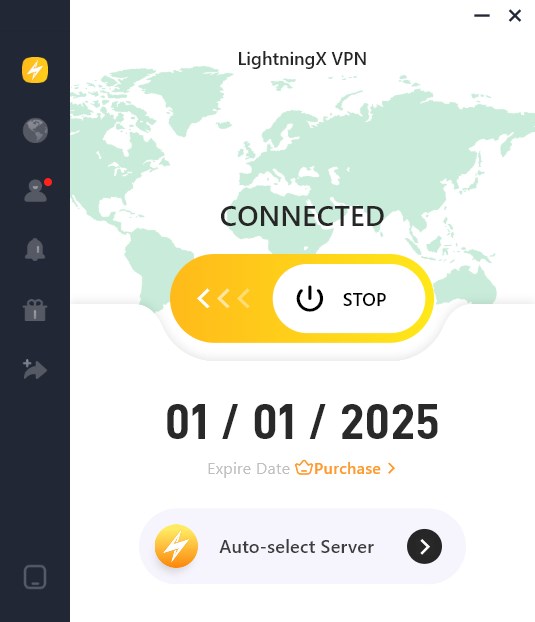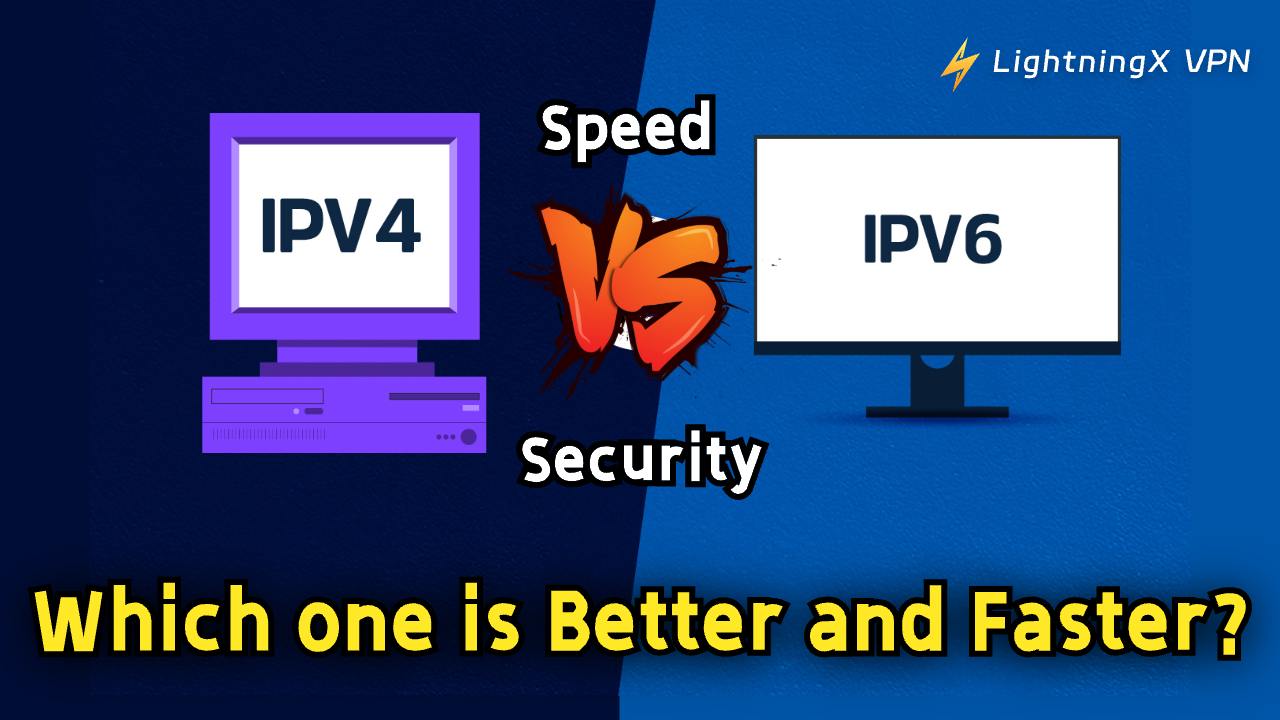IPv4 vs IPv6? You may be able to tell the difference by the numbers. IPv4 is Internet Protocol version 4 while IPv6 is Internet Protocol version 6. IPv4 is the primary version of Internet Protocol while IPv6 is the most recent one.
Although both are working for the identification of devices connected to the Internet or network, they also differ in many parts.
This post fully introduces their difference in speed, address format, header format, and performance in Xbox and gaming. Come and check.
What Are IPv4 and IPv6?
An IP address is a string of numbers assigned to each device connected to the Internet or network. This is the pass for each device to communicate on an internal or external network.
Therefore, your device must have an IP address to stream online.
IPv4, or Internet Protocol version 4, is now the most widely used system for identifying devices on a network. Its common format is x.x.x.x, where each x can be any value between 0 and 255. It was the primary version of the IP address and one of the core Internet protocols.
IPv6, or Internet Protocol version 6, is the latest version of Internet Protocol. It was developed by the IETF to replace IPv4 because the IPv4 addresses are about to run out. It uses 128-bit addresses and consists of eight groups of four hexadecimal digits each, separated by colons. For example, 2001:0000:130F:0000:0000:09C0:876A:130B is a typical IPv6 address.
IPv4 vs IPv6
You may want to know which IP address version is better. Here are their differences in speed, address format, security, header format, etc.
IPv4 vs IPv6: Speed
In some tests, the speed of IPv6 is faster than IPv4. The web and services provider Akamai found that the sites load 5% faster in the median and 15% faster for the 95% percentile on IPv6 compared to IPv4. This may be because IPv6 doesn’t need NAT while it routes and processes packets faster. In this case, IPv6 is better for people to stream online.
However, the speed of IPv4 and IPv6 is about the same in our daily streaming because there are so many factors to consider such as the optimization of network infrastructure, DNS, and other devices.
IPv4 vs IPv6: Address
IPv4 and IPv6 differ in address format and space.
IPv4 uses 32-bit addresses while IPv6 uses 128-bit addresses. The address format of IPv4 is x.x.x.x, where each x can be any value between 0 and 255. For example, 192.168.1.1 is a typical IPv4 address. However, the address format of IPv6 is x:x:x:x:x:x:x:x, where each x is the hexadecimal values of the eight 16-bit pieces of the address. For example, 1050:0000:0000:0000:0005:0600:300c:320b is a typical IPv6 address format.
IPv4 has 232 IP addresses but they are running out. IPv6 has 2128 IP addresses which solves the problem of lacking IPv4 addresses. The technicians are also trying to replace IPv4 with IPv6.
Related: Top 5 IP Generators to Get Unlimited IP Addresses
IPv4 vs IPv6: Security
IPv6 is more secure than IPv4 because the Internet Protocol Security (IPSec) is optional for IPv4 while it is required for IPv6. If you use IPv4, you may not have the IPSec or need to buy one. However, IPv6 is automatically equipped with IPSec, privacy extensions, and secure routing protocols such as OSPFv3.
IPv4 vs IPv6: Header Format
An IP header is a prefix to an IP packet that contains information about the IP version, length of the packet, source and destination IP addresses, etc.
The IPv4 header format contains some redundant domains. However, these are deleted or listed as extended headers in an IPv6 header. Though the IP header size of the IPv6 address is 4 times larger than the IPv4 address, the IPv6 headers are only 2 times the size of IPv4. This reduces the overhead of packet processing and header bandwidth to make it faster.
IPv4 or IPv6 for Gaming
IPv6 might be better than IPv4 for gaming because:
High quality of service:
Using an IPv6 address may help you increase the gaming speed. An IPv6 header remains the field for supporting QoS settings which helps you prioritize the gaming traffic by reducing latency.
Data multicasting:
IPv6 supports data multicasting. It helps data to be transmitted to different players at the same time. This is quite convenient for players.
However, IPv6 is not widely used today. You may need to wait until it is adopted by game servers and other players.
Use a VPN:
If the IPv6 cannot be used, you can use a VPN to improve your gaming experience. Here I recommend LightningX VPN for its excellent performance.
- It has strong encryption protocols to protect your data so that you will not encounter DDoS in the game.
- It covers more than 50 countries with 2,000 servers. You can access the games blocked in your region.
- It has no bandwidth throttling on your network so you will not encounter internet lag in the game.
- The free trial and affordable price will save your budget.
Price and plan:
- 1 day: $0.99
- 1 month: $5.99 ($0.19/day).
- 3 months+1 month free: $15.99 ($0.13/day).
- 1 year+1 year free: $59.99 ($0.08/day).

IPv4 vs IPv6: Xbox
Xbox supports both IPv4 and IPv6. If you want to use IPv6 on Xbox, you may need to enable IPv6 on your home router and your internet service provider must support IPv6.
You can check if your Xbox is connected using IPv6. Here are the steps:
- Press the Xbox button on your controller to open the guide.
- Select Profile & system > Settings > General.
- Select Network settings. If your Current Network Status reads IPv4 & IPv6, your Xbox is connected to IPv6.
Transition Mechanisms from IPv4 to IPv6
It is challenging to fully replace IPv4 with IPv6 because of the high costs, incompatible devices, and staff training on IPv6 management. However, there are still solutions for the transition such as dual-stack technology and IPv6 tunneling.
Dual-stack technology can help originate and understand IPv4 and IPv6 packets. The dual-stacked device supports both IPv4 and IPv6. It also can interoperate equally with IPv4 devices, IPv6 devices, and other dual-stacked devices.
Future Outlook for IPv4 vs IPv6
The transition from IPv4 to IPv6 is unavoidable because most of the IPv4 addresses are used. However, IPv6 provides unlimited IP addresses to solve the problem of lacking IPv4 addresses.
Although there is a huge challenge in replacing IPv4, putting IPv6 into place is an important thing. Professionals and technicians are striving to achieve it. Also, we may need to try to adapt to the technology changes.
Conclusion
After learning detailed information about IPv4 vs IPv6, you might know which one is better. However, keep in mind that IPv6 is not widely used for now, you may need to use IPv4 for some time.


















